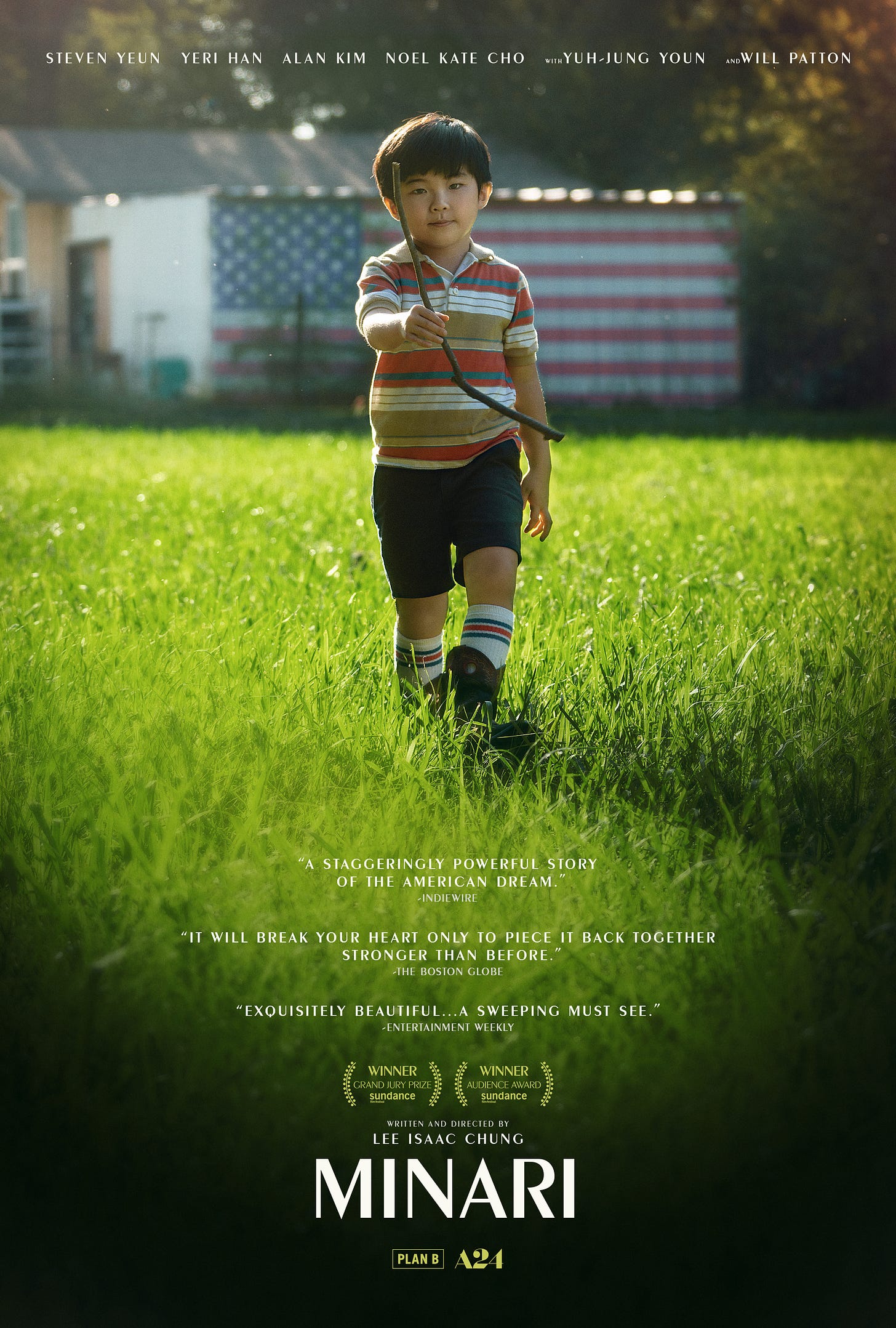Issue #17
Hi all —
One in five Americans speak a language other than English at home. The United States doesn’t even have an official language. We’ve always been a land of immigrants since our founding.
So it was quite a disconnect when the Hollywood Foreign Press Association classified the American film “Minari” ineligible for the best picture category at the Golden Globes because more than 50% of the movie was in a language other than English. Much of the movie is spoken in Korean.
On Sunday, “Minari” won the Golden Globe for best foreign-language film instead. It was a yet another exciting moment for Asian American representation — and also for just a darn good film — but the classification is still problematic.
By those antiquated standards, a Hollywood movie with mostly English dialogue that takes place in Britain with British characters is likely considered more mainstream and “American” than “Minari,” which shows South Korean immigrants to America trying to build a life in rural Arkansas after moving from California. The movie was shot in America. Co-produced by A24 and Plan B, “Minari” was written and directed by Denver-born Lee Isaac Chung, who spent much of his childhood in rural Arkansas.
When accepting the Golden Globe on Sunday, Chung was quite diplomatic and said it so well:
“‘Minari’ is about a family — it’s a family trying to learn how to speak a language of its own. It goes deeper than any American language and any foreign language. It’s a language of the heart.”
What’s more American than that framing?
We need to stop “otherizing” these stories.
This is us.
Recommended reading about this issue:
CNN: What the controversy over 'Minari' says about being American
USA Today: Here’s why ‘Minari’ is truly an American story, even if the Golden Globes disagree
NPR Fresh Air with Arun Venugopal: Lee Isaac Chung Jotted Down Some Family Memories – They Became ‘Minari’
Thanks for joining the conversation,
Vignesh Ramachandran (@VigneshR)
Co-founders of Red, White and Brown Media
COVID-19 Vaccines
We’re gradually hearing about more folks getting a COVID-19 vaccine in the U.S. But unfortunately, not everyone is yet sold on getting it — even though medical experts strongly recommend Americans get it when they have the opportunity, in order to slow the spread and achieve eventual herd immunity.
That’s why researchers at Rutgers University and California State University, East Bay want to understand what barriers South Asian Americans might be facing about the vaccine, so information can be better tailored for our communities.
If you’re interested, check out their anonymous survey.
If you or a loved one are eligible and looking for a COVID-19 vaccine in the U.S. — check out citizen hero Nick Muerdter’s COVID-19 Vaccine Spotter website, which scrapes various pharmacy websites in your state to find appointments. A valuable resource for all Americans during this vital time.
Your Thoughts
Please send a WhatsApp message to 646–481–3221 or email us to share your feedback, story ideas or anything else you’re thinking about these days:
Red, White and Brown sparks conversations about culture and politics in the United States through the lens of South Asian American race and identity. Please tell your friends and family to subscribe to this newsletter and follow the latest posts on Medium.






